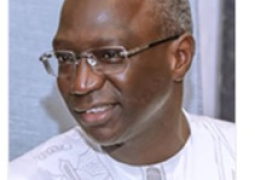
The EWC is a coalition of seven diverse CSOs. It aims to contribute to election integrity, accountability, transparency and impartiality.
Presenting the committee’s position paper on the Act at PAG Office, Ansumana Camara, chairperson for EWC said: "The commission shall appoint a chief electoral officer who shall hold office on terms and conditions specified in his or her letter of appointment."
"The EWC is of the view that the term of the Chairperson of IEC should be clearly outlined in the Election Bill 2022," he added.
This, he said, will dispel the uncertainty of the number of years one can serve as chairperson of the commission.
"As the case currently is, the term of the chairperson is unknown to the public.”
“Equally, the Bill does not specify the number of commissioners that will be appointed together with the chair to make up a commission,” he argued.
He said that lack of clarity in the Act could lead to a decline in public trust in the country's electoral process.
Camara also recommended that certain clauses should be inserted in the Election Bill, suggesting: "The members of the commission shall be the chairperson and four other members; the members of the commission shall be appointed by the President, subject to confirmation by the National Assembly with votes of at least sixty percent of all members of the National Assembly and members of the commission shall be appointed for a term of seven years and maybe reappointed for one further term."
The committee further raised concern over lack of clarity of qualifications of the commission members in the Act. According to Camara, the Act does not clearly state the qualifications for the position of electoral officers.
"For an independent institute of this nature, the qualification for the position must be stated to facilitate the appointment of individuals with the track record and character to execute the duties," he said.
In this regard, he recommended qualification and disqualification for the electoral positions.
He said a person qualifies to be appointed as a commissioner or election officer of IEC if he or she is a citizen of The Gambia; has a minimum of a university degree or equivalent qualification in a relevant field; has declared his or her assets and liabilities, and has paid taxes or has made satisfactory arrangement for payment of the taxes.
"The person should possess considerable experience and demonstrate competence in the conduct of public affairs and must be of high moral character and proven integrity," he said.
However, he recommended that a person shall not be qualified for a position of election chief or commissioner at the IEC if she/he has been declared of unsound mind and is a member of the National Assembly or any elective office; and if the person has at any time during the five years immediately preceding his or her appointment, being nominated as a candidate for election as a member of the National Assembly or any other political office.
He added that if the person is or has at any time during such period of five years been the holder of any office in the organisation that sponsors or otherwise supports, or has at any time sponsored or otherwise supported a candidate for election or he or she has actively identified himself or herself with any such organisation, shall not be appointed in election office.
He also suggested that with the qualifications set out above, the chair of IEC shall be a person qualified to be appointed a judge of the Supreme Court, a retired judge, or a person with other relevant qualifications with proven integrity, experience and demonstrated competence.
Read Other Articles In Headlines

President Barrow has already ‘Kalang’ the Hakalang’ … Says Minister Sillah
Feb 3, 2025, 11:43 AM




